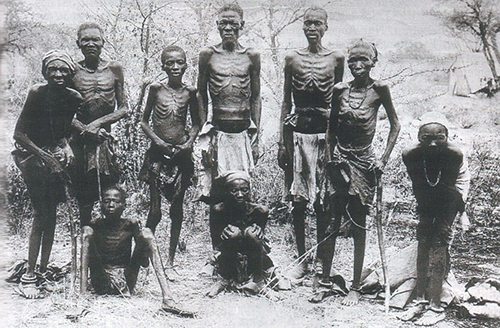The German government has refused to budge to criticism that alongside their Namibian counterpart, they have violated the rights of Nama and Ovaherero communities by excluding them from genocide talks.
This position is carried in a response by the Permanent Mission of the Federal Republic of Germany to the Office of the United Nations and to other international organisations in Geneva, seen by New Era.
“In the view of the German government, there is, therefore, no reason to assume that the participation of the affected communities, as it was designed on the part of the Namibian government, fell short of the requirements of the relevant human rights standards.
“Furthermore, the initialled joint declaration provides for the participation of the affected communities in the implementation of the programmes for reconstruction and development, as well as for reconciliation, remembrance, research and education,” the German government states in no uncertain terms.
Last month, UN special rapporteurs criticised both Namibia and Germany for violating the rights of Ovaherero and Nama ethnic minorities by excluding them from talks over reparations for colonial crimes against their ancestors.
Publishing their communication with both governments, the UN representatives called on Germany to take full responsibility for all its colonial crimes in Namibia – including mass murder.
To this, Germany retorted: “The initialled joint declaration reflects the shared understanding of the two sides of the events between 1904 and 1908 on the territory of what is now Namibia and concludes, with reference to the preamble of the Genocide Convention of 1948, that the abominable atrocities committed during periods of the colonial war culminated in events that, from today’s perspective, would be called genocide”.
“On this basis, it states Germany’s moral, historical and political obligation to tender an apology for this genocide and subsequently provide financial means for reconciliation and reconstruction programmes. It envisages a formal apology from Germany, and the acceptance of this apology by the Namibian side.”
The UN also said it was wrong for Ovaherero and Nama communities to have been involved indirectly in negotiations through an advisory committee (special envoy).
Responding to the special rapporteurs, the mission hastened to state that it attaches great importance to the UN special procedures in general.
The mission, in addressing the history of German colonialism in what was German- South West Africa (present-day Namibia) between 1884 and 1919, is of central importance to bilateral relations between the Federal Republic of Germany and the Republic of Namibia.
“In the war waged by German colonial troops in the colony from 1904 to 1908, atrocities were committed which have to be called genocide,” reads one of the responses.
According to the German government, the two governments are still standing by the widely-rejected joint declaration between the two governments.
The declaration, amongst other thorny issues, only recognises events of 1904-1908 as genocide, but only in today’s perspective.
“International Law, as it stands, however, provides for no such conclusion. According to Art 28 of the Vienna Convention on the Law of Treaties of 23 May 1969, which reflects customary international law, a treaty does not apply retroactively, unless a different intention appears from the treaty or is otherwise established,” the German government rebuffed.
Stalemate reached
Meanwhile, talks between the two governments have seemingly hit a stalemate.
As things stand, Germany has only proffered 1.1 billion euros (N$18 billion) for developmental projects in seven identified regions as reparations for genocide.
This is while Namibia’s N$1.1 trillion demand takes into account loss of life, dispossession of land and displacement, amongst others.
“Hopefully, we will reach a figure which Germany is ready to give, and which Namibia is ready to accept,” Vice President Nangolo Mbumba, who spearheads genocide talks on behalf of government, said last year.
Another issue that does not sit well with affected communities, the Namibian government and opposition parties, is the N$18 billion reparation offer which Germany has proposed to pay over 30 years.
It continues: “The German government regards the ban on genocide and human rights as key pillars of international law, and has been advocating the development of relevant systems of protection since the end of the Second World War. This also springs from the recognition of our moral responsibility”.
“However, the current regime of human rights protection is not a suitable instrument for addressing by legal means events which occurred long before its establishment.”
Without legal responsibility under international law, as relevant legal instruments sanctioning crimes such as genocide came into existence at a later point in time, “reconciliation must be sought by other means”.
“The German government would like to stress that this does not diminish the sincerity of its regret nor the seriousness of its efforts to bring about reconciliation, but rather underlines them,” the German government added.
This, it said, is further evidenced by the joint declaration, which provides for “healing the wounds of the past and to creating a lasting partnership for the future”.
The controversial joint declaration provides for a separate and unique reconstruction and development support programme in the Erongo, Hardap,//Kharas, Khomas, Kunene, Omaheke and Otjozondjupa regions, which are mainly populated by Ovaherero and Nama, Germany advanced.
The projects are to include the following areas in which they are disadvantaged to this day: land reform, especially land acquisition within the framework of the Namibian constitution, and land development, agriculture, rural livelihoods and natural resources, rural infrastructure, energy and water supply, and technical and vocational education and training.
– emumbuu@nepc.com.na


